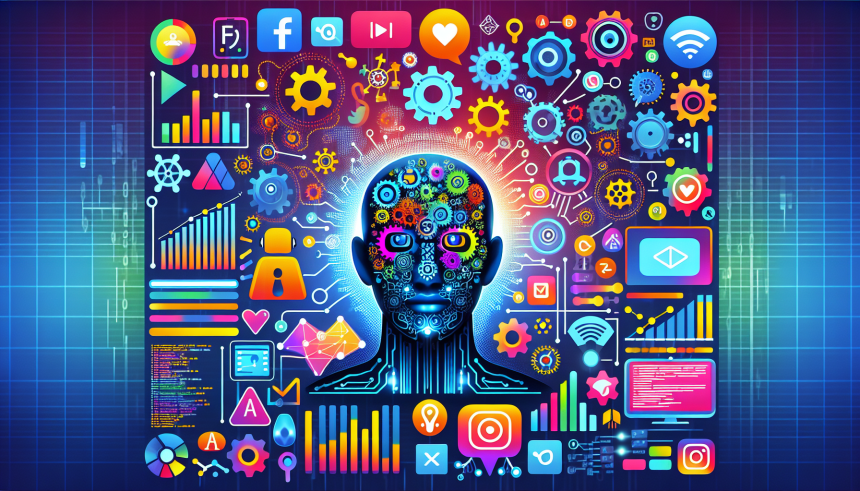Enhancing Social Media Strategy with AI Analysis Tools
Understanding the Role of AI in Social Media
Artificial Intelligence (AI) has transformed various industries, and social media is no exception. Social media platforms generate vast amounts of data on user behavior, preferences, and interactions. AI analysis tools can process this data efficiently, providing actionable insights that help brands and marketers refine their strategies.
AI Tools for Social Media Analysis
-
Natural Language Processing (NLP)
NLP is a subset of AI that focuses on the interaction between computers and human language. By leveraging NLP, businesses can analyze user-generated content such as comments, posts, and reviews to gauge sentiment. Tools like Sprout Social and Hootsuite use NLP algorithms to extract meaningful insights from social media conversations, enabling brands to identify trends and consumer sentiments quickly.
-
Predictive Analytics
Predictive analytics involves the use of historical data to forecast future trends. Tools like BuzzSumo and HubSpot utilize machine learning algorithms to analyze past posts, engagement rates, and audience behavior to predict future content performance. This allows marketers to strategize and tailor their content to maximize engagement.
-
Influencer Insights
Identifying the right influencers is critical for successful marketing campaigns. AI tools like Traackr and Upfluence analyse potential influencers’ social media presence, audience demographics, and engagement rates. These insights help brands form strategic partnerships, ensuring they connect with influencers whose audiences align with their target market.
Building Data-Driven Content Strategies
-
Content Optimization
AI tools can analyze which types of content perform best on various platforms. Platforms like SEMrush and Clearscope assist in determining which keywords, topics, and formats resonate with audiences on specific social networks. By continuously iterating based on AI-generated insights, brands can refine their content strategies, ensuring higher engagement rates.
-
Visual Content Analysis
Visual content is crucial on platforms such as Instagram and Pinterest. AI image recognition tools analyze visuals to determine what types of images or videos garner the most engagement. Tools like Google Cloud Vision and Canva offer analytics on how specific colors, composition, and subjects impact user interaction. This data helps marketers create visually appealing content that drives engagement.
Audience Targeting and Engagement
-
Demographic Analysis
AI tools can dissect audience data, providing insights into demographics, interests, and behaviors. Facebook Audience Insights and Instagram Analytics utilize AI to suggest target audience segments based on user behavior and preferences. This allows brands to tailor their campaigns more precisely, ensuring the right content reaches the right people.
-
Behavioral Tracking
Understanding how users engage with content is vital for optimizing social media strategies. AI analysis tools like Google Analytics for social media track user interactions over time, identifying patterns in how different segments engage with content. Marketers can leverage this information to innovate their approaches and make data-backed decisions.
Automation and Efficiency
-
Content Scheduling and Optimization
AI tools like Buffer and CoSchedule aid in scheduling posts at optimal times based on when target audiences are most active. These platforms also analyze engagement data to adjust future posting schedules automatically, ensuring maximum visibility and interaction rates.
-
Chatbots and Customer Service
Customer interaction has evolved with the emergence of AI chatbots. Tools such as Chatfuel and ManyChat can handle a variety of inquiries in real-time, providing users with instant responses. Incorporating these chatbots into social media platforms enhances customer experience and frees up human resources for more complex tasks.
Measuring Success with AI
-
Performance Metrics
Data analysis is vital for gauging the effectiveness of social media strategies. AI tools like Brandwatch and Sprinklr track numerous metrics, such as engagement rates, share counts, and click-through rates. With AI-driven insights, brands can create comprehensive reports detailing what works and needs improvement.
-
A/B Testing
AI can streamline A/B testing processes by analyzing user responses to different versions of content or ads. Tools like AdEspresso facilitate A/B testing by providing automatic insights on performance disparities, allowing brands to make informed decisions on which content performs best.
Integrating AI into Social Media Strategies
-
Cross-Platform Analysis
Social media is multi-faceted, with users engaging across different platforms. AI tools enable cross-platform analysis, creating a unified view of brand performance. Tools like Socialbakers analyze metrics across multiple channels, helping brands understand their overall social media health and engagement levels.
-
Real-Time Monitoring and Alerts
Staying informed about brand reputation is vital. AI-driven tools like Mention and Meltwater monitor social media channels in real-time, alerting brands of spikes in mentions or sentiment changes. This immediate feedback enables brands to respond promptly, managing their reputation effectively.
Future Trends in AI and Social Media
-
Enhanced Personalization
The future of social media marketing will likely see increased personalization driven by AI. Advanced algorithms will enable even more tailored content delivery, with AI analyzing vast datasets to serve content specific to individual user preferences and behaviors.
-
Augmented Reality and AI
Combining AR with AI tools can further enhance user engagement. Brands can leverage AR filters, like those on Snapchat or Instagram, and apply AI algorithms to analyze user interaction with these features, allowing for optimized interactive experiences.
Conclusion
Investing in AI analysis tools can significantly elevate a brand’s social media strategy. By understanding user behavior, optimizing content, and enhancing customer interactions, businesses can achieve meaningful engagement and improved ROI. As technology evolves, the integration of AI in social media strategies will become increasingly essential, driving more sophisticated engagement and personalized experiences. Businesses that adapt and embrace these tools will find themselves ahead of the curve, armed with insights that not only inform strategy but also inspire creativity in their social media efforts.


